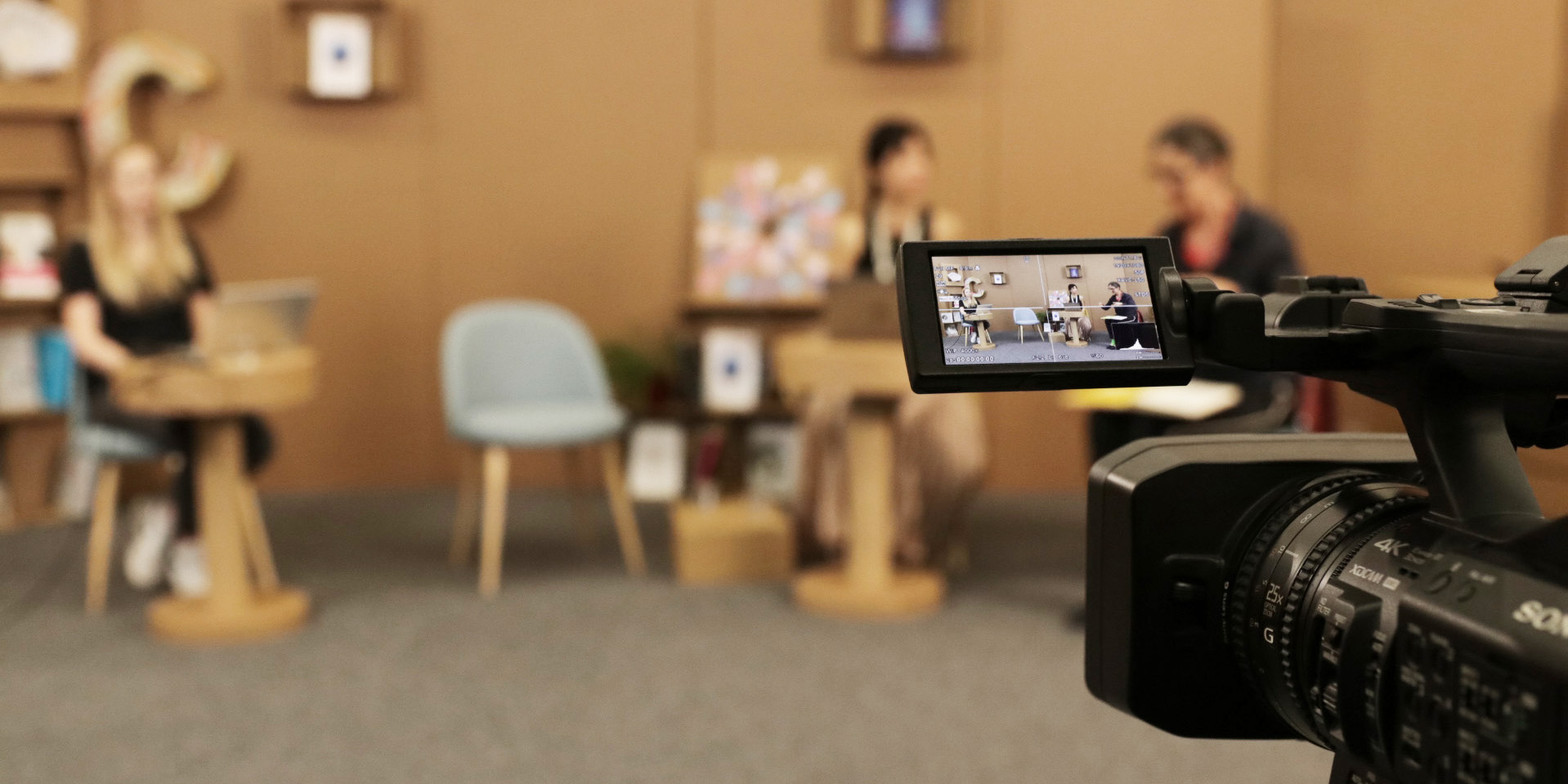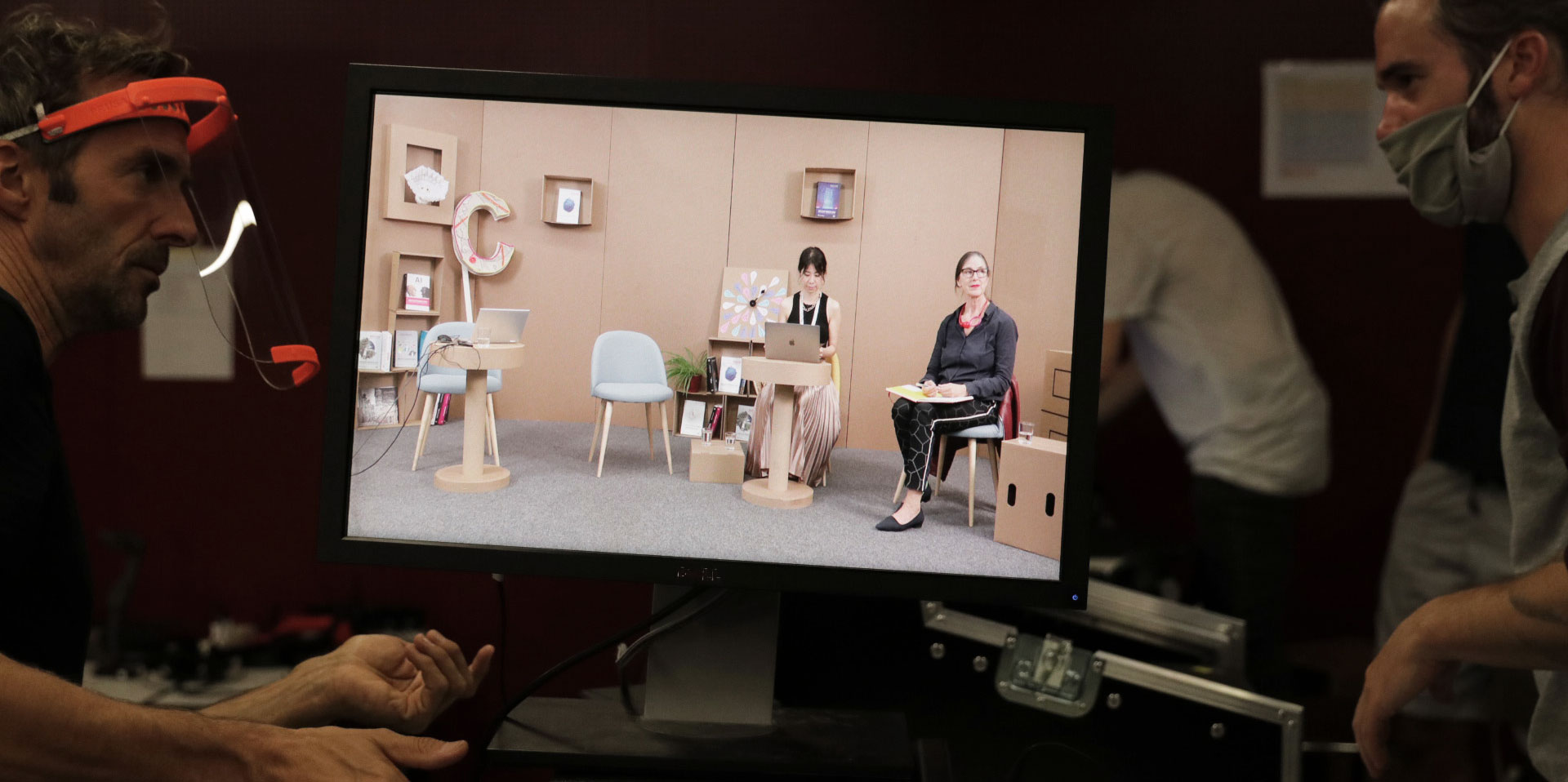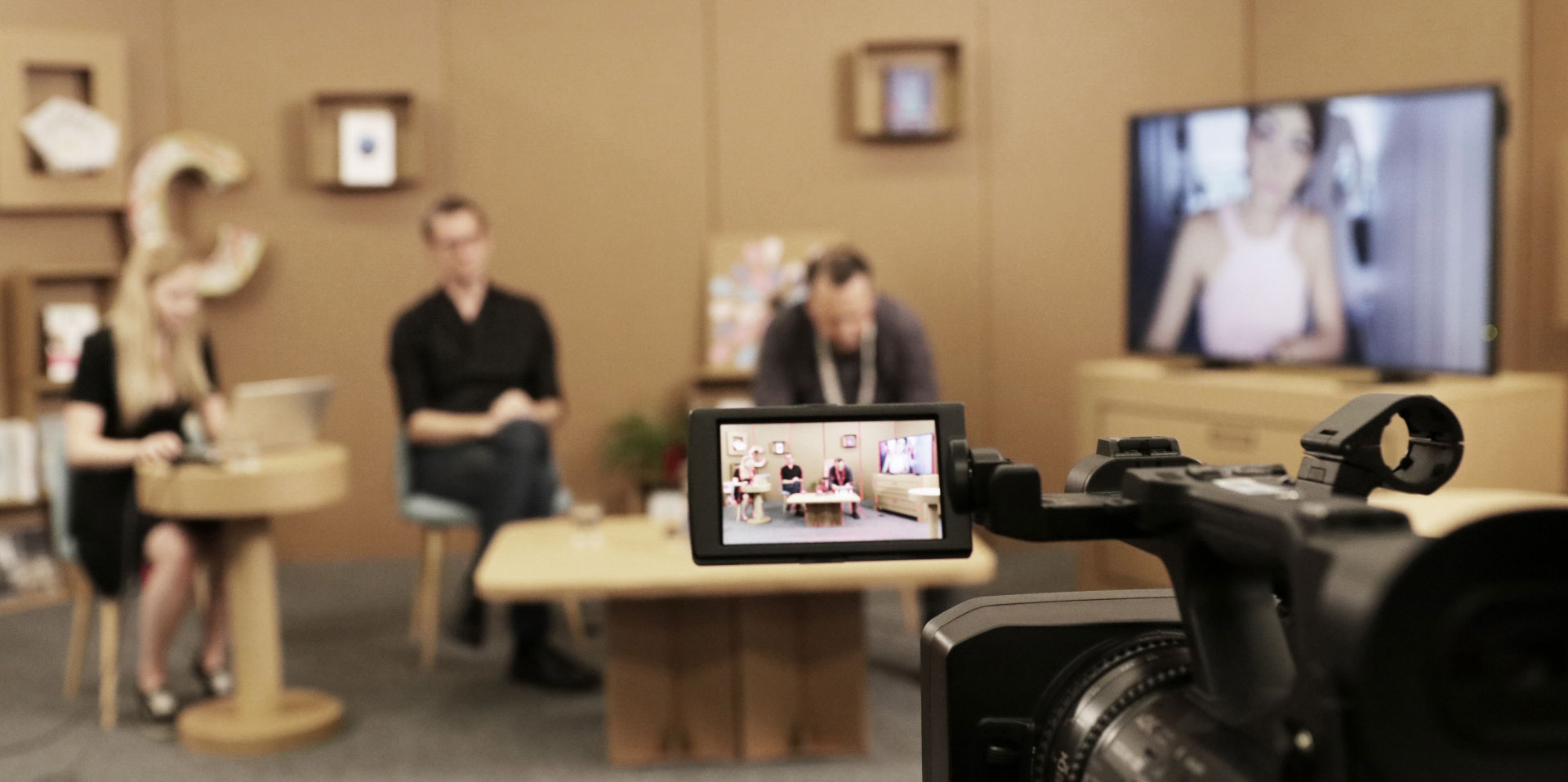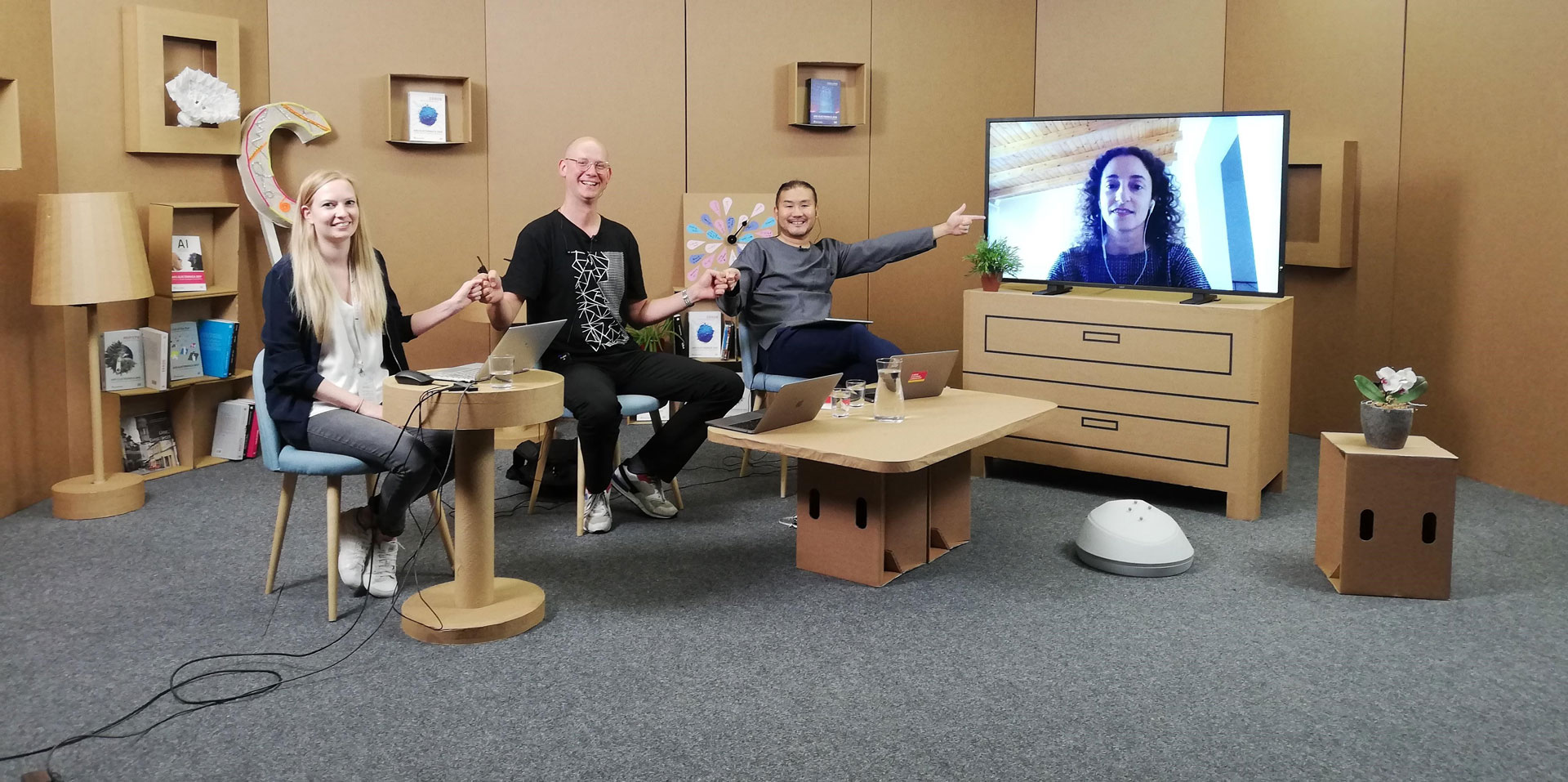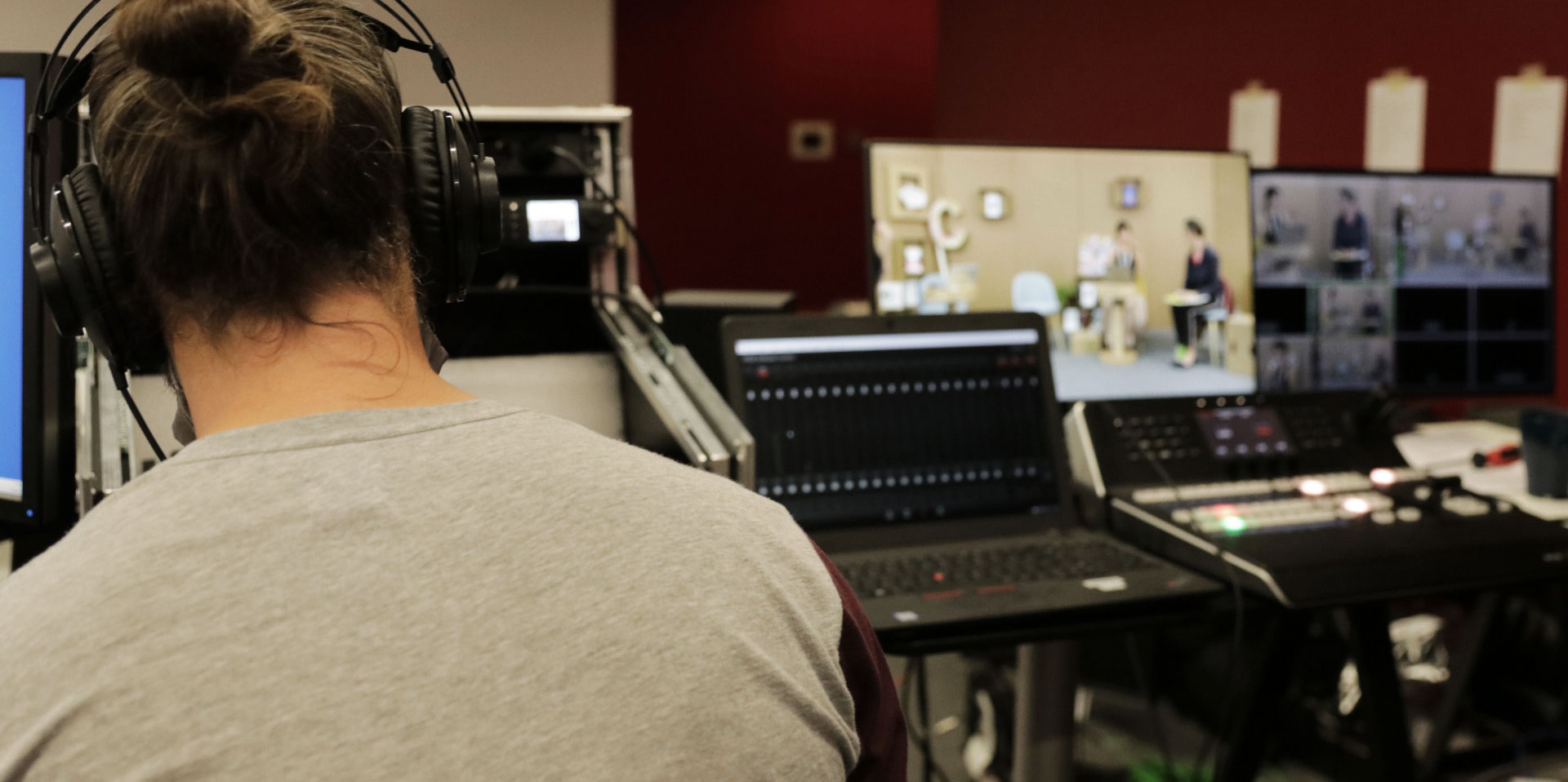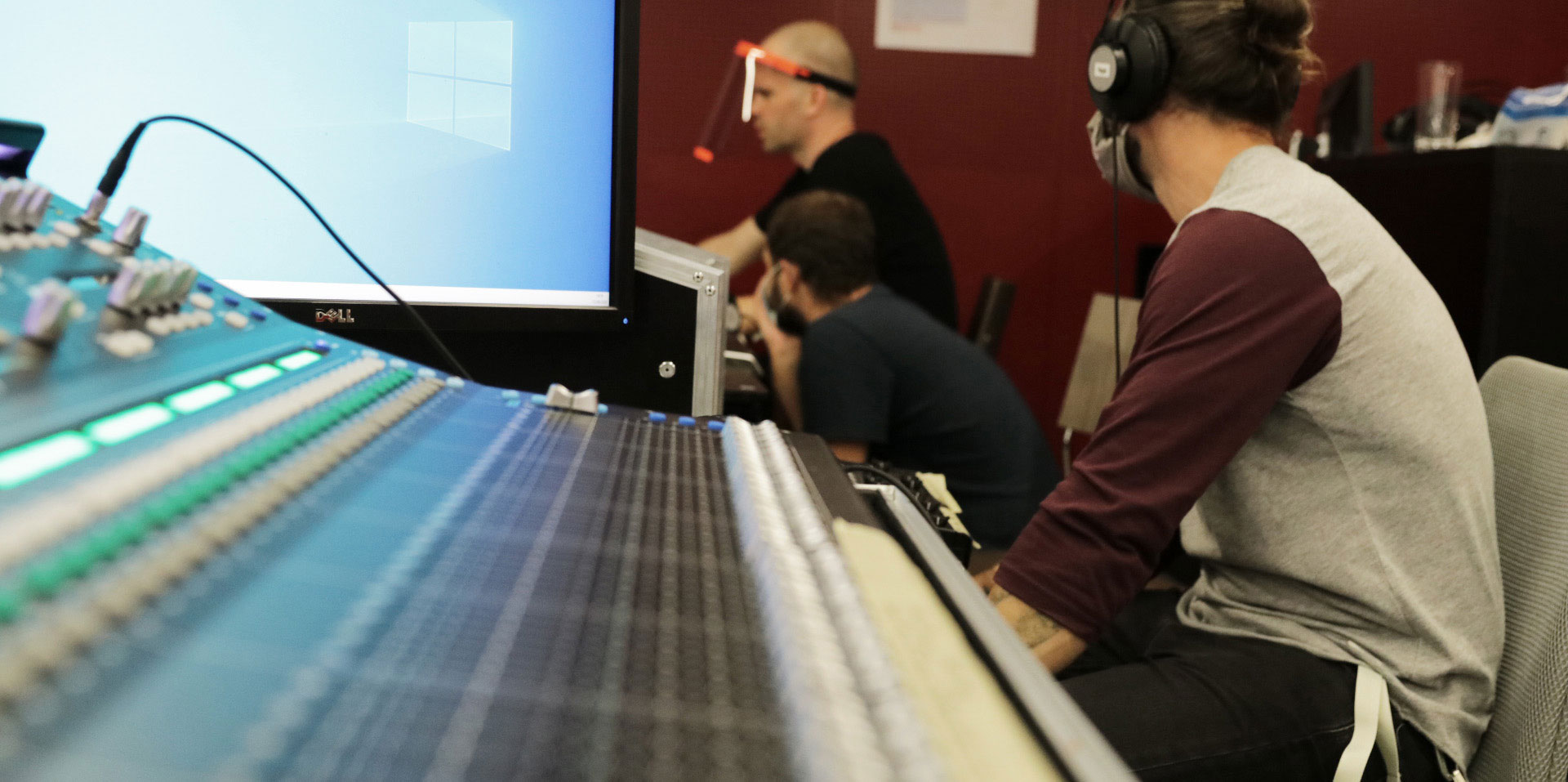The Creative Question Challenge (CQC) is a new brainstorming format that aims to encourage to think and discuss in a 30-minute exploration of questions relevant to the future while these thoughts are being visualized on a map.
CQC is based on the Future Innovators Summit (FIS), which has been held as part of the Ars Electronica Festival since 2014. Both FIS and CQC were created in collaboration with the Japanese communications and design company Hakuhodo. In their joint mission, Ars Electronica and Hakuhodo promote the method of Art Thinking through experimental settings such as FIS and CQC.
Due to the coronavirus pandemic and the break it caused within our trusted systems, the world today is facing many new challenges. In order to develop new perspectives and future scenarios for our social life, CQC was created as a platform to discuss important future topics and to view them from diverse perspectives.
The Ars Electronica Futurelab also participated in this collective challenge, among other things by organizing CQCs within the framework of the Open Futurelab with stimulating contributions on the following questions:

How can we utilize the power of art for the city of future?
“Every discipline is really great at something. And art is really great in sketching the future.”
– Thomas Gegenhuber (AT/DE), assistant professor for digital transformation at the Leuphana University of Lüneburg
Why we should focus on the role of art in public spaces, its relevance for diversity, participation and criticism of and in a society, why we should pay more attention to the fragility of public systems to enable the power of social empathy for the design of future concepts and how creative thinking at the interface of art and governance could influence a radical turn, can be re-watched in the Ars Electronica Futurelab Creative Question Challenge CQC on Art and Governance.
Moderated by Hideaki Ogawa (JP/AT), Director at the Ars Electronica Futurelab, Irini Papadimitriou (GR/UK), Creative Director of FutureEverything, remote from Greece, and Thomas Gegenhuber (AT/DE), assistant professor for digital transformation at the Leuphana University of Lüneburg, live from Linz, accepted the challenge of sorting their thoughts and ideas on the role of art for innovation and governance.
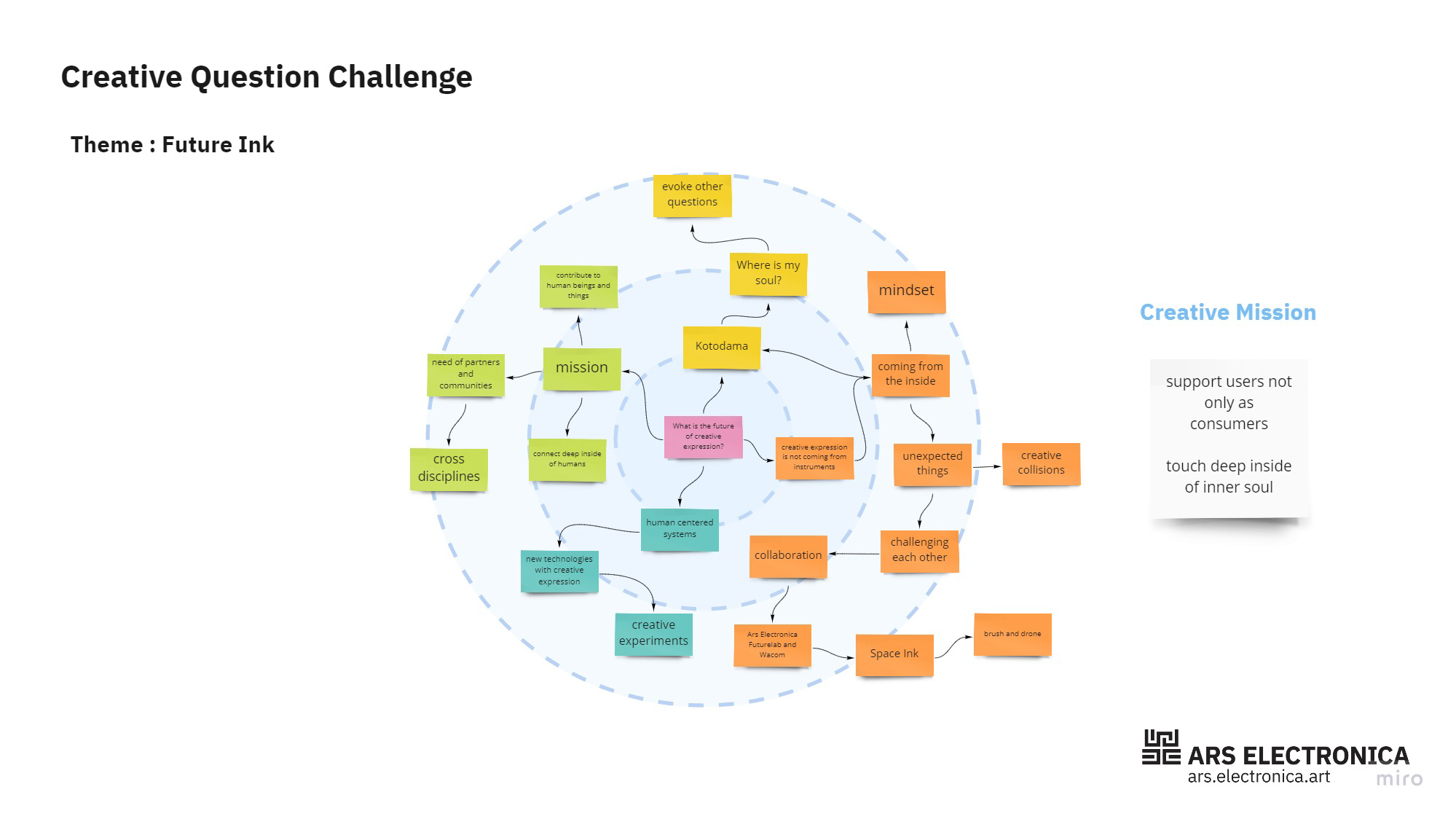
What is the future of creative expression?
“Creative expression is not created by a technology or an instrument. It really comes from deep inside of human nature.” –
Nobutaka Ide (JP), President & CEO Wacom Co Ltd
Why a successful global company like Wacom is envisioning the future in collaborating with art for its innovations, why it does not only count on technical solutions, profits and returns, but also what radically new form of creative expression can be expected from the inspiring and comprehensive research project that has recently been launched between Wacom and the Ars Electronica Futurelab, can be re-watched in the CQC on the transdisciplinary and collaborative research project Future Ink.
Together with Nobutaka Ide (JP), President & CEO of Wacom Co Ltd, Horst Hörtner (AT), CTO Ars Electronica Linz GmbH & Co KG and Managing Director at the Ars Electronica Futurelab talks about the future of creative expressions during an Ars Electronica Futurelab Creative Question Challenge, moderated by Yoko Shimizu (JP/AT), Researcher & Artist at the Ars Electronica Futurelab.

What is the Future of Art in Education?
“Historically, the task of universities has been to transfer knowledge from one point to another. Now, we need new, creative methods, dynamics and transdisciplinary structures in order to be able to continue to meet the society’s expectations in an age of general availability of information.” – Prof. Elisabeth Gutjahr (DE), Chancellor of the Mozarteum University Salzburg
What important role artistic, creative methods and approaches could play for the future viability and social relevance of our education systems and what currently prevents innovation in the university context as well as possible approaches for a fundamental change regarding converting the relevance of traditional methods of knowledge transfer, can be re-watched in this Ars Electronica Futurelab Creative Question Challenge CQC on the role of art in education.
Moderated by Yoko Shimizu (JP/AT), Researcher & Artist at the Ars Electronica Futurelab, Prof. Elisabeth Gutjahr (DE), Chancellor of the Mozarteum University of Salzburg and Horst Hörtner (AT), CTO Ars Electronica Linz GmbH & Co KG and Managing Director Ars Electronica Futurelab outline the significance of transdisciplinary approaches to art and science for universities and schools of the future as well as the changing expectations placed on organizational structures in the age of information society.
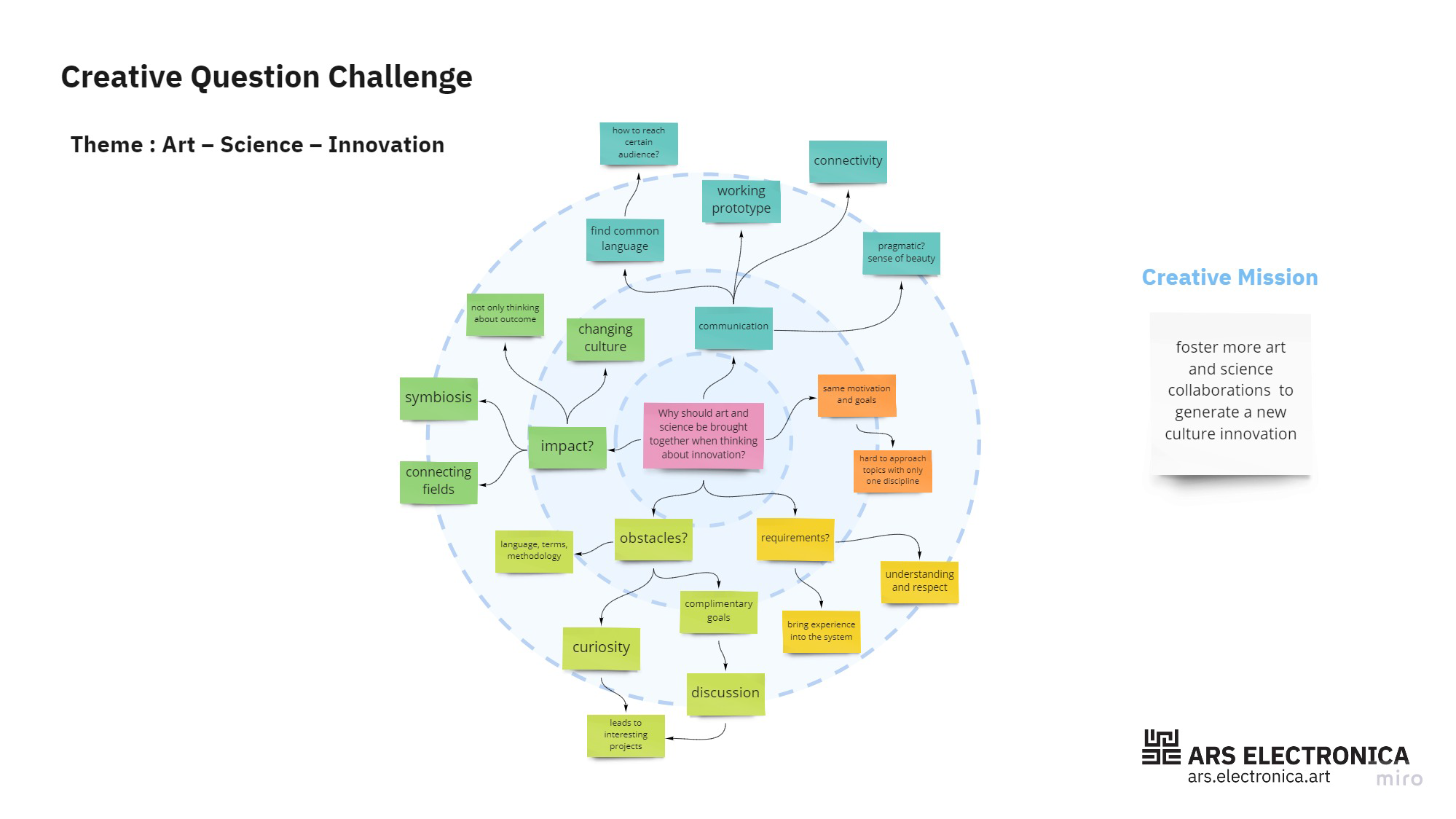
Why should art and science be brought together when thinking about innovation?
“Traditionally, art and science have been regarded as two separate disciplines with different conventions and various audiences, although they share the common goal of understanding the world surrounding us.” – Anouk Wipprecht (NL), Hi-Tech fashion designer and innovator
Questioning the requirements for integrating a culture of change inspired by art and science into a business environment, the role of curiosity, openness and understanding of the methods of others and overcoming the boundaries between disciplines, all are preconditions for operating future work environments.
Why creative future visions combined with complementary skillsets and experimental approaches of diverse teams can help to achieve transdisciplinary goals, can be found out in this Ars Electronica Futurelab Creative Question Challenge (CQC) on Art – Science – Innovation.
Christopher Lindinger (AT), Vice-Rector for Innovation and Researchers at Johannes Kepler University, and Anouk Wipprecht (NL), Hi-Tech fashion designer and innovator, remote from Miami, are discussing the interfaces between art and science in relation to a culture of innovation that is reinventing itself again and again. The visionary talk moderated by Roland Haring (AT), Technical Director at the Ars Electronica Futurelab, was broadcasted live from Linz.
Any creative questions left?
Visit Ars Electronica Futurelab’s new website and develop new perspectives that can help to actively shape our common future together with us and our Creative Question Challenges.
